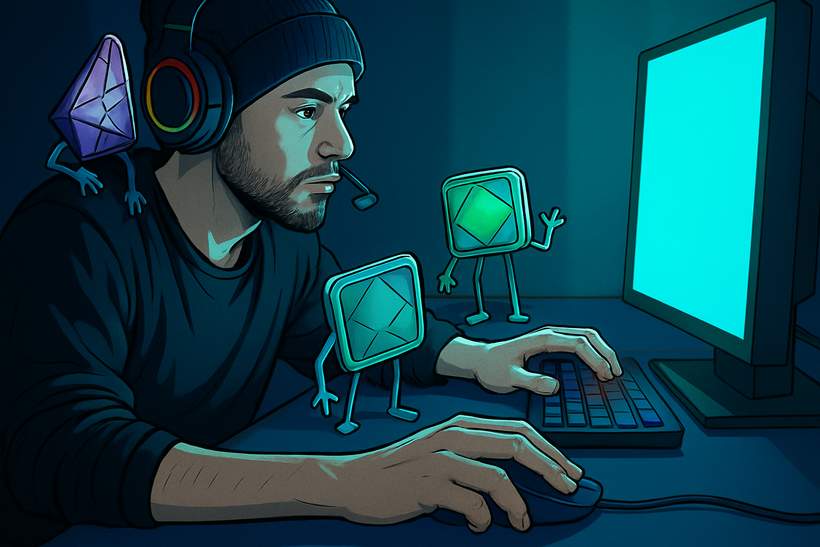Valve’s Counter-Strike 2 Update Causes Economic Chaos, Rekindles NFT Discussions

The Economic Tsunami in Counter-Strike 2
So, let’s talk about the multibillion-dollar skin market associated with Counter-Strike 2. This cosmetic paradise, valued at an astounding $5.8 billion, took a nosedive faster than your uncle at a karaoke contest after a game update. According to the latest gossip from Esports News, the skin market reached dizzying heights, but fast forward a bit, and a whopping $2 billion went poof! Yep, it vanished following a not-so-user-friendly game update.
What Went Wrong?
Valve, the masterminds behind Counter-Strike, decided to shake things up by altering the trade-up system. This change allowed players to trade five low-rarity skins for a shiny knife or a pair of gloves. Sounds exciting, right? Well, hold your horses! This decision flooded the market with knives and gloves, plummeting their prices like they were on an extreme bungee jump. Suddenly, the value of certain skins soared, as gamers scrambled to get their hands on them. Talk about a rollercoaster ride!
When Gaming and Money Mix: A Cautionary Tale
In a twist that’s straight out of a drama series, Ethereum co-founder Vitalik Buterin reflected on his own gaming heartbreak when he played World of Warcraft. After the horror of losing his beloved warlock’s Siphon Life spell back in the day, he learned a valuable lesson about the risks of centralized power in gaming. “I wept like a baby that night,” he might as well have said. This kinda echoes what’s happening now with Counter-Strike 2.
NFTs to the Rescue? Not Quite
Now, while blockchain and NFTs might be the buzzwords floating around, they haven’t exactly won over the gaming community. NFTs are often associated with digital art, but they could step in to tackle issues like the Counter-Strike mess. How? By introducing smart contracts that would govern digital items, providing security and rules to prevent chaos. However, don’t get too excited just yet; experts like Martin Kupka from Win Win warn that even with NFTs, the market could still tank. Valve’s still the boss, and they control the item features!
Transparency is Key!
Kori Leon, co-founder of Pixelverse, chimed in, stating that smart contracts could have set up clear rules from the beginning. Predictable changes? Yes, please! Having everything laid out in black and white helps prevent those surprises that leave players crying into their gaming chairs.
What’s Next?
Catie Romero-Finger, CEO of Babs, highlighted that the Counter-Strike 2 skin disaster is a stark warning: billion-dollar economies can crumble anytime if trust is the only currency. “It’s all about centralization changing the rules when it suits them,” she said passionately. Meanwhile, Nokkvi Dan Ellidason from Gaimin described the crash as a glimpse into the fundamental problems of centralized economies. Players are just numbers in Valve’s ledger, and that’s a bitter pill to swallow.
Consumer Rights in a Digital World
Finally, Joana Barros from My Neighbor Alice emphasized that as gaming economies expand, transparency and immutability become must-haves, not just trendy terms. “As these gaming markets grow to rival reality ones, transparency and immutability are basic consumer rights, not just Web3 buzzwords,” she stated, and honestly, she’s not wrong!